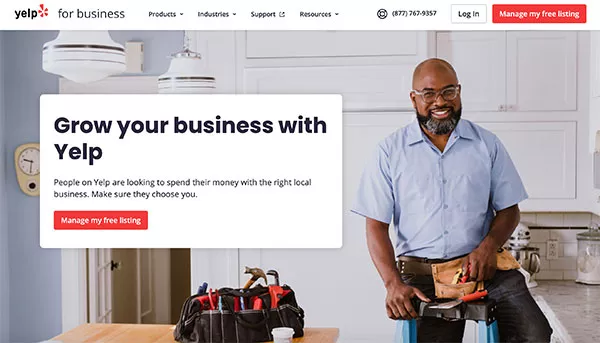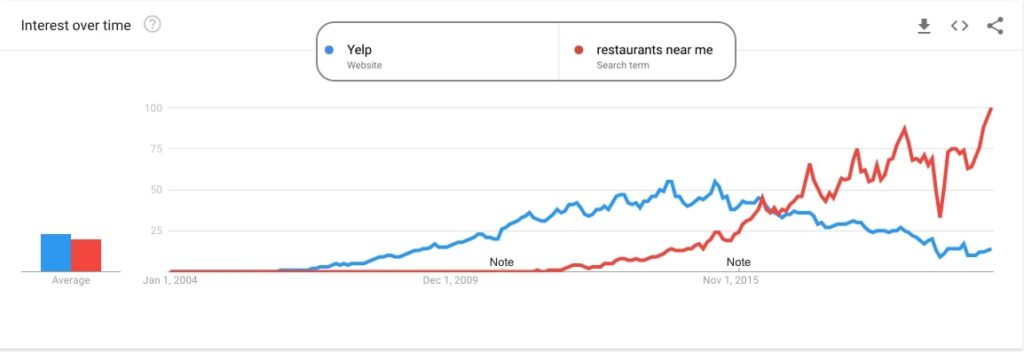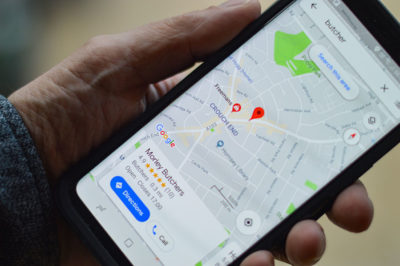
- Originally Published on June 3, 2021
Does Yelp Blackmail Small Businesses to Remove Negative Reviews?
If you own or manage a business, you understand the importance of online reviews and a positive online reputation. Reviews can often make or break a business—which is why the notion of Yelp extortion and rumors of Yelp blackmailing businesses can be alarming.
Many small businesses have reported being extorted or blackmailed by Yelp unless they pay for, and utilize, Yelp’s advertising services. While some companies have benefited significantly from positive Yelp reviews, others’ reputations have been damaged by false or negative reviews that became prominent on the site.
At Minc Law, we have extensive experience helping clients deal with negative and fake Yelp reviews. We regularly assist businesses in removing or responding to defamatory, fake, or negative reviews on Yelp and similar platforms.
In this article, we explain how Yelp works. We also discuss the controversy surrounding Yelp being accused of blackmail and unfair practices. Finally, we demonstrate several alternative methods you can use to promote your own company without needing to rely on Yelp for a positive online reputation.
Negative Yelp reviews impacting business?
Let Minc Law help. Our team will work efficiently to remove damaging reviews & preserve your online reputation.
Contact Minc LawRumors of Yelp Extortion of Businesses
Although Yelp has been a popular online review platform with consumers for decades now, it has developed a darker reputation among business owners. Below, we explain the basics of how Yelp works both for and against businesses.
What is Yelp & How Does It Work?
Yelp is one of America’s most popular online directories and social networking sites. Specifically, Yelp’s crowd-sourced review platform enables users to discover new and local businesses, including:
- Restaurants,
- Bars,
- Shopping destinations,
- Contractors,
- Auto mechanics, and
- Massage therapists.
Yelp, Inc., which offers a website and mobile app option, publishes crowd-sourced consumer reviews about businesses on the platform. Yelp has a strong social component and encourages its users to leave written reviews of their products and services, photos of their experience with each business, and a rating using the platform’s one-to-five-star rating system.
Yelp sorts its listings by business type. Results are filtered by geographic location, price range, and unique features like outdoor seating, online appointments or reservations, and types of meals served.
What Do Businesses Pay Yelp For & What Are the Results?
Positive yelp reviews have the potential to make a difference in a business’s revenue and reputation. A 2011 Harvard Business School study found that each “star” in a Yelp rating, on average, increased a business’s revenue by 5 to 9%.
And a 2012 study by two Berkeley economists found that an increase from 3.5 to 4 stars on Yelp resulted in a roughly 19% increase in the chances of the restaurant being booked during peak hours.
Businesses like restaurants, clothing stores, and beauty salons understand the importance of appearing in a positive light on Yelp. Many of these businesses pay Yelp for the right to appear at the forefront of relevant search results. They also pay to be featured on their competitor’s pages, with the review of their choice as a teaser.
For example, if a Yelp user searched for “Mexican food” in Cleveland, Ohio, the advertising restaurant might appear before the organic results.
Yelp only allows businesses with at least a three-star rating to sign up for advertising.
Reviews posted on Yelp can also be reviewed by other users. Popular reviewers have the potential to be promoted to Yelp “Elite” status. These elite reviewers are not paid for their reviews, but they are often invited to free events, where restaurants and bars showcase new products and promote themselves.
What Are the Rumors Surrounding Yelp Extortion?
In recent years, Yelp has been the subject of considerable controversy—and even a 2019 documentary—regarding its reputation for alleged extortion.
Allegedly, Yelp has extorted small businesses by raising or lowering ratings based on whether a business is actively paying for, and using, its advertising service. For example, Yelp has been accused of suppressing and removing real, positive reviews for a business that refuses to pay Yelp’s advertising membership fee, while prominently displaying false, negative reviews for that same business.
According to the rumors, once a business pays an advertising fee (rates for which start at $150 per month), the negative reviews mysteriously disappear.
In 2013, one San Diego lawyer acting as a small claims judge likened Yelp’s business practices to the “modern-day version of the Mafia going to stores and saying, ‘You want to not be bothered? You want to not have incidents in your store? Pay us protection money.’”
Furthermore, two lawsuits filed against Yelp by company investors alleged that the company’s stock traded at exponentially inflated premiums because the “company tried to sell services designed to suppress negative reviews or make them go away.”
Many customers of small businesses have also claimed to witness this very tactic when they researched restaurants, barbers, and contractors that they had been using for years.
Is Yelp Unethical?
Yelp has been accused of unethical business practices by countless groups and clients over the last several years and has been the subject of an exposé documentary entitled Billion Dollar Bully.
Of course, Yelp has consistently disagreed with these allegations, asserting that these claims are based on conspiracy theories.
How Yelp Works For Small Businesses
Despite the negative controversy surrounding Yelp’s advertising practices, there are thousands of success stories as well. These success stories demonstrate the importance of online reviews.
How Does Yelp Work to Help Small Businesses?
If you are a business owner who wants to cultivate a positive online presence, your first step is to claim your business on Yelp (if you have not done so already). If you have not created your own page for your business, it is likely that a customer has already done so for you.

A Comprehensive Yelp Profile Can Instill Trust in Consumers
Claiming your page on Yelp enables you and your small business to:
- Upload photos of your food, products, or completed services;
- Add external links to your website and social media profiles; and
- Add crucial information, such as your phone number, menu, hours, and specials.
Potential customers are more inclined to visit or purchase from and/or engage your business if a menu or pricing guide is available online.
When writing the “About” section for your business, think specifically about relevant keywords customers might be searching for that could lead to your page.
For example, if you own a restaurant, consider cravings that customers might have, like “late-night breakfast” or “authentic Italian.” If you are a hairstylist or barber, consider using terms like “balayage” or “hot lather shave.” And, if you own a pet store, terms like “doggie daycare” and “pet grooming” are a surefire way to increase traffic to your business.
Yelp May Promote Events Related to Your Business
Yelp also offers a feature to promote events that your business may offer, including concerts, art shows, pet playdates, themed parties, and yoga meetups.
Claiming a Yelp Profile Enables Direct Communication With Your Customers
Most importantly, claiming your page and creating an account with Yelp allows you to respond privately and publicly to customers who have posted reviews into your business.
How Can Yelp be Used to Tear Down Small Businesses?
Unfortunately, Yelp’s review platform also has the potential to cause negative side effects for small businesses.
Virtually anyone can create a Yelp account using either real or fake information. Signing up for an account is as simple as entering an email address and a password. A new user may not even need to enter their email address if they link their Facebook account to their profile.
This low barrier to entry allows anyone to make a fake Yelp account and anonymously post negative reviews about a business—whether they depict their experience accurately or not.
Yelp does claim to police its user’s reviews, as evidenced in its Content Guidelines and Terms of Service. However, it is often difficult to disprove or spot a fake online review.
Video: 3 Effective Strategies to Remove Fake & Negative Yelp Reviews

Where Does Yelp’s Influence Begin & End When it Comes to Local Business?
Yelp is one of the most commonly-used review sites online, along with TripAdvisor and Google. While Yelp has grown in popularity since its inception, recent Google updates to local search have eaten into Yelp’s usage rates.

Now that there are several competitors in the online review space, the power of a Yelp review disproportionately overshadows Yelp’s online presence as a whole.
Previous Legal Cases Against Yelp
What Lawsuits Have There Been Against Negative Yelp Commentators?
In 2019, Michigan resident Lisa Agostino left a negative Yelp review of North Wind Heating and Cooling. She stated that the company overcharged her for an installed part, but the company disagreed with her version of events.
The small local company faced a difficult decision: sue a customer, or allow a damaging allegation to go unchallenged and intact? After asking Agostino to take the review down, North Wind Heating and Cooling filed a defamation lawsuit against her seeking $25,000 in damages and the deletion of the review.
One Tennessee woman, Kelly Beavers, posted a negative Yelp review about Dr. Kaveer Nandigam of Nandigam Neurology. She alleged that the doctor threw a “temper tantrum” after discovering Beavers had been recording video of her father’s appointment.
The doctor responded that Beavers had been violating medical privacy policies and, since she was not a patient, had no right to leave a review in the first place.
Is There a Class Action Lawsuit Against Yelp?
A group of small businesses brought Yelp to court in 2011 in a class-action lawsuit alleging that Yelp “extorted or attempted to extort advertising payments from them by manipulating user reviews and writing negative reviews of their businesses.”
The case was dismissed on appeal on the grounds that the complainants had not adequately proven (1) Yelp had wrongfully threatened economic loss by manipulating user reviews, (2) it was unlawful for Yelp to post and sequence both positive and negative reviews, (3) Yelp authored negative reviews, and (4) Yelp’s conduct amounted to a violation of antitrust laws by threatening or harming competition.
What Lawsuits Have There Been Between Businesses & Yelp as a Company?
Below, we examine five additional high-profile lawsuits brought against Yelp by businesses.
Albert V. Yelp, Inc.
Lenore Albert alleged that a former employee attacked her business by posting false negative reviews on her Yelp profile. Albert also alleged that Yelp allowed her review page to become negatively slanted after she declined to purchase an advertising package.
Albert filed a lawsuit against Yelp claiming defamation, tortious interference, and intentional infliction of emotional distress. Yelp filed an anti-SLAPP motion in response, which was granted and affirmed on appeal.
The court found that Albert’s defamation claim was preempted by Section 230 of the Communications Decency Act, Yelp did not act in an intentionally outrageous manner (ex. Purposefully hiding positive reviews or authoring fake reviews), and in fact, did not commit any wrongful act.
Demetriades v. Yelp, Inc.
James Demetriades, a restaurant operator, filed a complaint seeking an injunction under the unfair competition law and the false advertising law to prevent Yelp from making claims about the accuracy and efficacy of its “filter” for unreliable or biased customer reviews.
However, Yelp responded that its statements about its filter were matters of public interest. The Superior Court of California ruled in favor of Yelp, finding that the plaintiff (1) did not establish that the unfiltered reviews posted by Yelp were anything less than the ‘most trusted reviews’ by consumers, (2) did not support his claim that Yelp was not always working to provide consumers the most trustworthy, unbiased reviews, and (3) did not prove Yelp knew, or in exercise of reasonable care should have known, that the reviews in question were false or misleading.
Kimzey v. Yelp, Inc.
Douglas Kimzey’s locksmith business received two negative Yelp reviews. Kimzey filed suit against Yelp, claiming that since Yelp turns reviews into cumulative star ratings, Yelp was not merely a user-generated site, but an information provider in its own right. This distinction would disqualify Yelp from legal immunity under Section 230 of the Communications Decency Act.
However, the court’s decision found that Kimzey’s allegation was merely a creative way to skirt Yelp’s immunity from being sued for negative user reviews. Furthermore, Yelp’s rating system, based on rating inputs from third parties, is best distinguished as a “neutral tool operating on voluntary inputs” that does not amount to original content creation and is essentially the same format as a search engine.
Yelp’s motion to dismiss the case was upheld.
Spiegelman v. Yelp, Inc.
In this case, the plaintiffs brought a lawsuit against Yelp for using their business information without their permission. The information included their names, business contact information, likenesses, and media. The plaintiffs were, in essence, attempting to use California’s constitutional privacy protection laws to force Yelp to delist their business from its platform.
However, the court found that Yelp functions as a public forum in this situation and indisputably contributes to informed consumer decisions. As such, the plaintiffs’ “decisions to participate in the free market under organized corporate forms and advertise themselves in various media supports the conclusion that [Yelp’s] activity relates to a public issue.”
Quigley v. Yelp, Inc., et al
Rodney Quigley filed a First Amendment lawsuit against Yelp, Twitter, Facebook, and other major media companies. He claimed that his banning from these platforms was a violation of his First Amendment rights.
The court quickly determined that because these institutions are not government actors, they do not have First Amendment obligations to the Plaintiff. The case was dismissed.

What is the Usual Outcome of These Lawsuits & What Future Does That Spell For Small Businesses & Yelp?
In many cases, as demonstrated above, Yelp is not liable for reviews made on its platform due to protections granted under Section 230 of the Communications Decency Act.
Video: What is Section 230 of the Communications Decency Act?

Section 230 immunizes internet service providers, such as Google, Facebook, and Yelp, from lawsuits based on content published by third parties – unless a narrow exception applies. So if a Yelp user publishes a fake or defamatory review about your business, you generally cannot sue Yelp for defamation, because the platform is immune under Section 230 of the CDA.
In most cases, the best course of action is to take action against the reviewer themselves, not Yelp.
For further reading on why you generally cannot sue internet platforms like Yelp, please read our article ‘Can I Sue Google?’.
Common Alternatives to Yelp For Advertising Your Business
Since Yelp reviews can be both beneficial and damaging, it may be worthwhile to consider alternative means of promoting your business or service. We explore some of the most common methods—both online and offline—below.
What Other Websites Work Well For Advertising Your Business?
If you are looking for alternative platforms on which to advertise your brand, consider the following:
- Google,
- Angie’s List,
- Amazon,
- Facebook,
- Instagram,
- The Better Business Bureau,
- TripAdvisor,
- The Yellow Pages, and
- TikTok.
This last option, TikTok, is an especially prime advertising venue for Etsy shops and other such small creators.
Can You Remove Your Business From Yelp?
Yelp functions largely as a crowd-sourced information platform, which means that unfortunately, there is no way to remove your business from Yelp. Users can leave a review of your business whether or not you have created and claimed a business listing.
If a reviewer has generated a listing page for your company, you can claim and manage it to some extent—but as a business owner, you do not have absolute power over your profile.
While you cannot remove your business from Yelp, you can remove Yelp reviews (if they are considered defamatory).
Unless an exception to Section 230 of the Communication Decency Act applies, Yelp cannot generally be held liable for bad reviews. But that does not mean there is no recourse for businesses plagued with malicious attacks.
What Are Some Physical Methods That Can Work to Promote Your Business?
In today’s digital age, it is difficult to promote your brand without resorting to paid online advertising. But it is far from impossible. Below, we list four techniques to market your business in the physical world.
1. Display Stands With Accompanying Spokespeople
Many customers today enjoy the convenience of shopping online. But most still prefer to speak to a fellow human being when deciding which company to purchase from.
When done correctly, stalls, marketing stands, and even trade show exhibition stands can have a lasting effect by helping potential customers put a face to your company’s name.
2. Strategically Place Posters, Flyers, or Banners
If you want to grab the attention of as many potential customers as possible without being online, posters and banners are the perfect way to do so. The best way to obtain results from this strategy is to keep your poster or banner design eye-catching, short, and to the point.
For example, public transportation stations, food courts, and roadside billboards are all places that see high traffic and are most likely to attract the notice of passersby.
3. Acquire a Sponsorship
An excellent way of promoting your business and connecting with potential customers in a physical, offline space is through sponsoring worthy and popular causes in your community, such as:
- Events,
- Sports teams,
- Trade shows,
- Charity fundraisers, and
- Networking sessions.
4. Improve Physical Branding
Physical branding is one of the most powerful offline methods of spreading the word about your company, regardless of your budget.
For example, if you run a company that sells products online, simply upgrading your packaging options can go a long way towards drawing attention to your physical brand.
What Are the Top Methods of Business Promotion That Do Not Involve Yelp?
There are many ways to promote your business online without relying on crowd-sourced platforms over which you have very little control. The most effective methods include:
- Creating a website,
- Building a social media presence,
- Engaging in search engine optimization (SEO),
- Creating an email list,
- Running contests and specials, and
- Offering discounts and coupons.
Create a Website
Every business needs a website, no matter how old-fashioned your business or clients may be.
Your website is the go-to for current and prospective customers. Even if customers find you on social media or Google, they will want to visit your website—and, like your Google listing, your website serves to promote your business around the clock.
An effective business website not only serves as a promotional tool in and of itself, it:
- Tells the story of your business and what you offer,
- Provides contact information, and
- Reflects your brand’s personality and distinguishing characteristics.
Your website is also essential for measuring and improving the success of your other promotional tactics.
For example, when a customer clicks on an ad for your business, they will land on a landing page—which is hosted on your website. And when you post helpful information on social media, your posts should link back to your website, too.
With all of your marketing channels flowing into your website, you can use analytics to see which strategies are working best. This information can give you invaluable insights about your audience.
Having your own domain name, a professional look and feel, and the ability to scale and add features as needed are all essential for business growth.
Build a Social Media Presence
Your customers are on social media, which means your local business should be, as well.
Create a profile on the social media networks that matter to your local business and its customers. For example:
- If you engage with other businesses or want to hire locally, set up a LinkedIn page.
- If you sell products that are visually appealing, create an Instagram profile.
- And if you like to share thought leadership, tips, ideas, and other content, use Twitter.
Once you have social media profiles, build a presence on those networks. Post content regularly and engage with your followers by answering questions, sharing posts, offering useful advice, and reacting to what others have to say.
Utilize Search Engine Optimization (SEO) Strategies to Increase Search Result Visibility
Promoting your business is one thing—and letting Google promote your business is another.
Search engine optimization (SEO) is a set of practices that align your business with Google’s ranking algorithm. If you follow SEO best practices, your business website will appear higher in Google search results for certain keywords.
Because Google’s algorithm has evolved to use machine learning and user behavior to produce the most accurate and quality results for searchers, optimizing for search engines is really just optimizing for searchers—particularly those searching for what you have to offer.
Create & Nurture an Email List
Email marketing can be very effective and offer a high return on investment. If a customer has agreed to provide you with their email, they have already shown interest in your local business and offerings.
However, email marketing is only as effective as the strength of your email list. Encourage customers, social media followers, blog post subscribers, and others who are interested in your local business to sign up for your email list.
Then, create email marketing campaigns that provide subscribers with value. You will see better results when you create segmented email marketing campaigns that target different groups on your email list.
Run Contests & Special Promotions
The possibility of winning a prize can be a great motivator. Contests encourage the public to frequent your local business and spread the word to their friends and family members.
Use your social media presence to promote contests and special promotions as part of your marketing strategy. As part of the contest, ask your followers to post photos of your business or to use your products in different ways. You can award a prize to the person whose post has the most likes or shares.
Contests and other special promotions will also help to build your social media following and customer base. Social media users prefer to follow friends and family, so if they see them participating in an online contest, they may follow your social media profile and participate in the contest as well. This strategy attracts a larger audience for your digital marketing efforts, as well as more potential customers.
Offer Discounts & Coupons
Customers like to save money whenever they have a chance to do so. The internet has made it easy for people to compare prices and search for the best deals.
As a small business, it is important to be aware of this trend and adjust prices accordingly. Offering discounts to local customers is one way to encourage business.
If your local company has an online store, offer an active discount code. Physical discount vouchers and coupons can incentivize customers to visit your physical location, where you can encourage them to make additional purchases.
You can also provide other discounts or incentives for signing up for your email list.
Work With Minc Law to Remove Bad Yelp Reviews
Building, managing, and promoting a business in the digital age is complex and can easily be overwhelming. Many factors can contribute to your company’s success, and your reputation—both online and offline—is a major contributor.
That is why being the victim of online defamation, fake reviews, or extortion can be not only exhausting but devastating.
If you or your business is a victim of extortion or online attacks, it is essential to consult the right legal counsel about your options. At Minc Law, we have helped many businesses like yours handle the challenges that accompany defamatory Yelp reviews, and even fight back against online extortion and blackmail.
★★★★★
“They were very understanding. They did not judge me and they were very helpful. It gave me peace of mind to have someone who I could turn too in a stressful situation.”
Jordan Fong | January 7, 2022
To schedule a free and confidential Internet defamation removal consultation with an intake specialist, call Minc Law at (216) 373-7706 or contact us online by filling out our online contact form.
This page has been peer-reviewed, fact-checked, and edited by qualified attorneys to ensure substantive accuracy and coverage.




